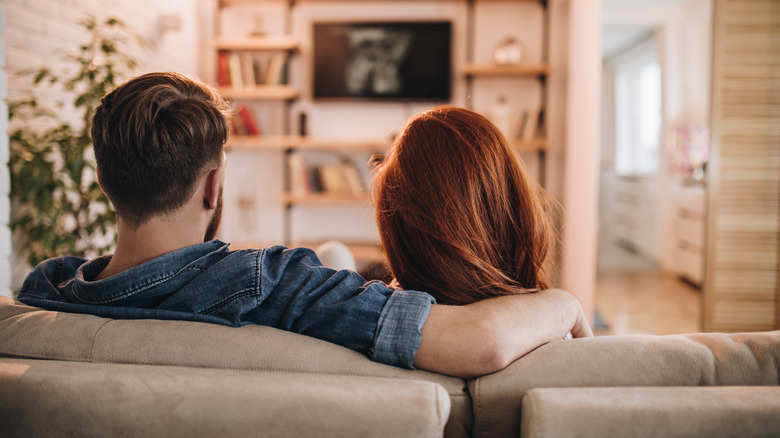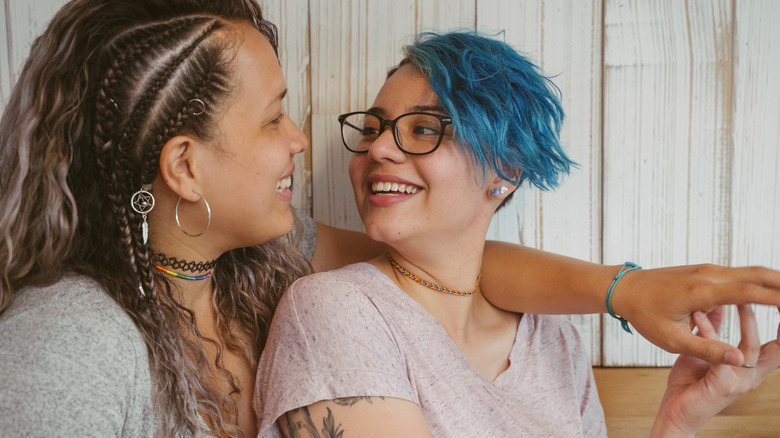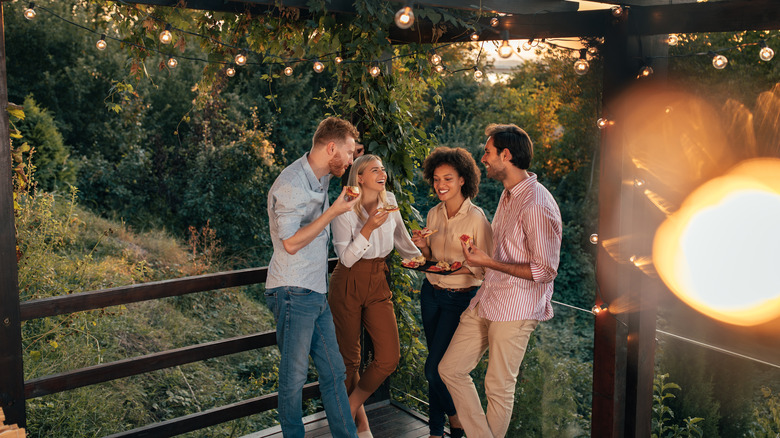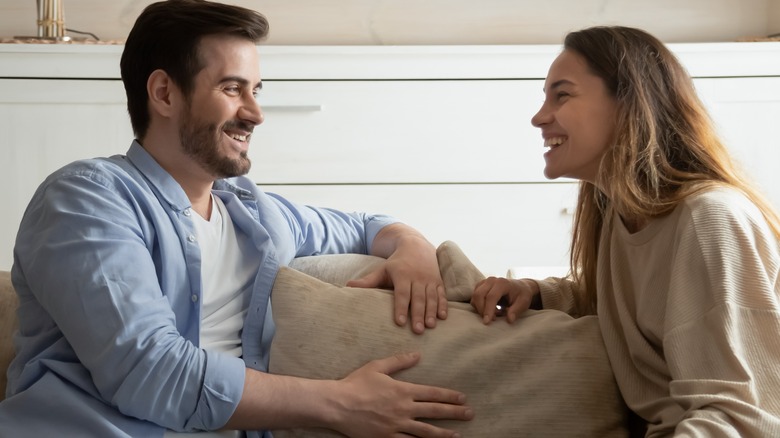3 Things To Consider Before Inviting The Person You're Seeing Over For The First Time
If you're a single woman or femme-identifying person, then you may be familiar with this tale as old as time: You want to invite the person you've been seeing over, but you don't know if they've passed the safety test. While everyone has their own measurements of safety — background checks, public dates, mutual friends, etc. — it can be intimidating to invite a stranger into your most personal space.
Embracing vulnerability has always been the first of many adjustments when it comes to a new relationship. However, the COVID-19 pandemic and its stay-at-home order have had a huge impact on how we navigate new relationships. A report by Mashable revealed that 70% of single U.S. adults in the U.S. find dating harder post-COVID. In the midst of the lockdown, people relied on video calls, social distancing, and masked dates to meet their romantic needs.
In light of the CDC's recent announcement that COVID-19 is no longer a public health emergency, we've rounded up some important things to consider when inviting a date over. While public health is no longer a huge concern, there are still a few things to keep in mind.
Know your boundaries ahead of time
Before inviting a date over, it's important to set boundaries with yourself and with them beforehand. "When it comes to relationships, it's much better to be clear about your boundaries from the very beginning," relationship expert Jessica Alderson explained to Mashable. "If you don't, it can have negative impacts on your mental health and self-esteem." Keep in mind that your boundaries can always change as your relationship grows.
For example, meeting at anyone's house is not recommended for a first or second date. When you're inviting someone over, make sure you've established a relationship with them and had the chance to discuss who you are, what you want, and where your relationship is going. If you're clear about these boundaries beforehand, you'll save yourself the pre-date anticipation and worry. "Sharing what you are comfortable with early on when dating helps minimise the risk of resentment building up," Alderson says.
Make it a double date
If you're worried about safety, doubling up on couples might help ease some of your nerves. Inviting a close friend whose partner knows you just as well could be even more helpful, closing the gap between awkward silences or attempted boundary-pushing. Having multiple people over also allows you to ease up and be yourself, which is one benefit of at-home dates.
The intimacy of these dates "can lead to a bonding experience due to the privateness of the space which allows you to feel freer when it comes to expressing yourselves," dating and relationship expert Callisto Adams told Mashable in the same interview. For double dates, self-expression can come in the form of drinking, cooking, or watching a movie together. If you're not interested in a double date and want one-on-one time with the person you're seeing, you can notify a roommate, friend, or family member about the date for ease of mind. In addition, keep your location on for a few of them.
Trust your gut
No one knows what feels right better than you do. If you've been seeing someone who you feel good about, it might be worth it to take a leap of faith. Of course, safety is always a concern; but your intuition is always working to protect you. Whether something feels right or wrong, lean into it (while taking the appropriate measures).
Above all, the person you're seeing and want to romantically move forward with should make you feel comfortable, supported, and understood. That means being vocal about your fears when they're triggered, knowing that the person on the other end is receptive and open to hearing you out. Trusting your gut applies during the date, too — if something feels wrong, don't hesitate to say it. If you want the date to end, establish a way out with a close friend. Most importantly, don't talk yourself out of what feels real.



